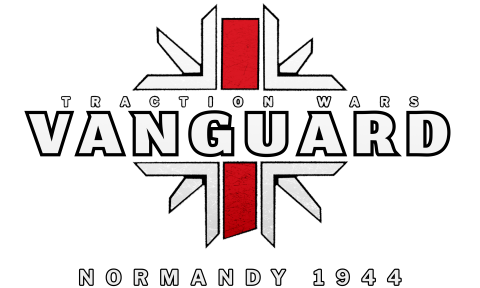To finalise our updates on this historic day we would like to share something we've long hinted and which took place 70 years ago today. Operation Tonga: Merville Battery.
For the very latest media and updates follow us on the social networks below, as well as our community forum and our regularly updated media gallery.
"Of the many airborne actions that took place in the British Sector of Normandy on June 6th, 1944, few were as hard fought and suffered such mixed results as the assault on Merville Battery. Believed to house 150mm guns capable of smashing British landing operations at Sword Beach, the battery was given high priority for the men of the 9th Parachute Battalion for destruction. On the night of June 5th, 1944, 600 men of the battalion were set to land by glider and parachute into the fields of Normandy, and knock out this crucial German battery.
It was at this point that things went wrong. Not only did the battery only house 100mm Czech M. 14/19 guns, only 150 of the 600 man battalion were actually landed in the right locations and able to organize for the assualt. Amoung the missing were the crucial engineering units which were expected to destroy the guns and bunkers. Meanwhile, air support was for naught, as the British bombers completely missed the bunker, instead plastering the countryside to the south. Despite all this, the attack went on, blasting the wire to bits and the first wave meeting stiff German resistance, as only 4 of the intial wave survived the rain of lead (though more soon followed).
Using what little plastic explosive and other explosive they had, the men of 9th Parachute Battalion went to work, blasting each casemate in turn, silencing the guns and killing or capturing those Germans in the area. Once their work was completed, the battalion left the bunker to continue with their secondary objectives. In total, 75 of the 150 men in the assualt force had become casualties, with German losses being 22 casualties and roughly the same number captured.
However, without the engineers, the destruction was far from total. Not only had the majority of the German battery personnel survive the assault by staying hidden underground, but they were quickly able to bring two of the guns back into service, and began to direct sporadic fire onto those British positions their guns could reach on June 6th. Thus, on June 7th, British Commandos from No. 3 Commando were ordered to assault the battery and wipe it out once and for all. The assualt was a dismal failure, with the Germans more than prepared to meet the assault, and even firing their working guns over open sights on the Commandos, inflicting severe losses. The battery would, in the end, never fall to enemy assualt, and the two surviving guns would continue to bombard British positions until the German general retreat from the area on August 17th, 1944."
It was at this point that things went wrong. Not only did the battery only house 100mm Czech M. 14/19 guns, only 150 of the 600 man battalion were actually landed in the right locations and able to organize for the assualt. Amoung the missing were the crucial engineering units which were expected to destroy the guns and bunkers. Meanwhile, air support was for naught, as the British bombers completely missed the bunker, instead plastering the countryside to the south. Despite all this, the attack went on, blasting the wire to bits and the first wave meeting stiff German resistance, as only 4 of the intial wave survived the rain of lead (though more soon followed).
Using what little plastic explosive and other explosive they had, the men of 9th Parachute Battalion went to work, blasting each casemate in turn, silencing the guns and killing or capturing those Germans in the area. Once their work was completed, the battalion left the bunker to continue with their secondary objectives. In total, 75 of the 150 men in the assualt force had become casualties, with German losses being 22 casualties and roughly the same number captured.
However, without the engineers, the destruction was far from total. Not only had the majority of the German battery personnel survive the assault by staying hidden underground, but they were quickly able to bring two of the guns back into service, and began to direct sporadic fire onto those British positions their guns could reach on June 6th. Thus, on June 7th, British Commandos from No. 3 Commando were ordered to assault the battery and wipe it out once and for all. The assualt was a dismal failure, with the Germans more than prepared to meet the assault, and even firing their working guns over open sights on the Commandos, inflicting severe losses. The battery would, in the end, never fall to enemy assualt, and the two surviving guns would continue to bombard British positions until the German general retreat from the area on August 17th, 1944."
For the very latest media and updates follow us on the social networks below, as well as our community forum and our regularly updated media gallery.





